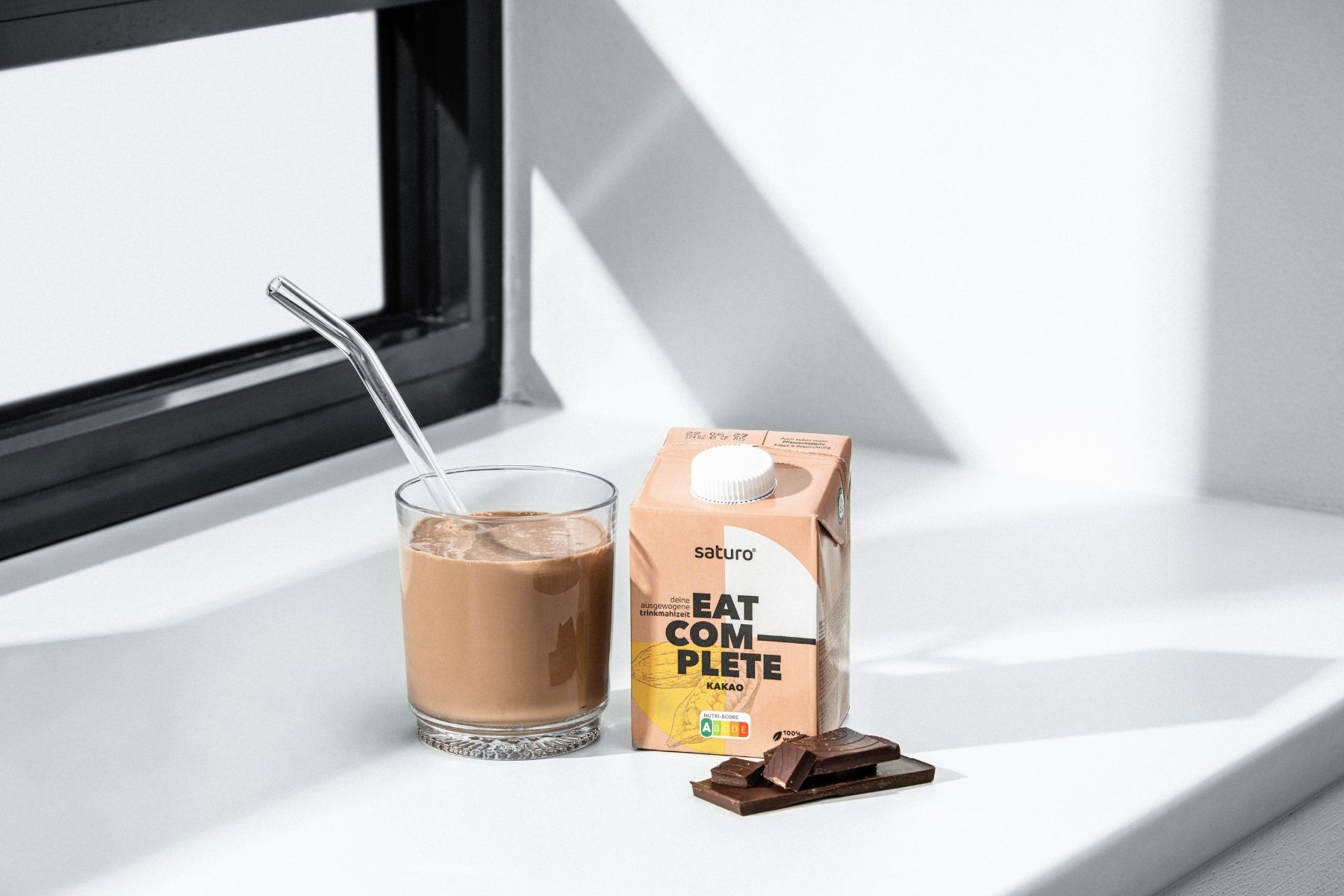
Heartburn: Causes and what helps against it!
If you often wake up with heartburn, you're not alone! The causes of heartburn are just as varied as the potential measures you can take to combat heartburn. We'll show you what causes heartburn and how you can actively prevent it.
Heartburn - what helps?
Where the esophagus flows into the stomach, there is a ring -shaped muscle, which is referred to as a lower esophageal muscle. This muscle acts as a valve and is intended to prevent the acid of the stomach flowing into the esophagus. A healthy sphincter should only open if you z. B. swallows or belts. If you suffer from heartburn, the functions of this muscle are affected. If you z. B. drink a lot of mineral water, build up pressure in the stomach so that acid is pressed through the opening. There are many foods and everyday habits that can lead to heartburn. Fortunately, there are also many measures that you can take to fight and prevent heartburn. With these tips you can put an end to your heartburn!
Pay attention to how much you eat
The choice of food plays an important role, but the basic rule of thumb is: Avoid going down big meals quickly, but take your time while eating. In most people, heartburn is noticeable after consuming great meals 1 And also they can also worsen heartburn. 2
Pay attention to when you eat
People who suffer from heartburn should not eat anything three hours before falling asleep. The food shortly before going to bed leads to stronger reflux complaints. 3
Pay attention to what you eat
If you suffer from heartburn, there are certain foods that you should definitely avoid. This includes mainly acidic foods or foods that contain active ingredients that stimulate gastric acid production. These include:
- Carbonated drinks (Mineral water, cola, lemonades etc.) 4
- Acidic juices (e.g. orange, pineapple or grapefruit juice)
- Acidic food (Tomatoes, pineapple and all citrus fruits)
- Excessive consumption of food with very high fat content and above all fried meals
- caffeine: If you still don't want to do without your coffee in the morning, you could switch to espresso. It is roasted longer, which creates fewer coffee acid and instead contains more bitter substances. Nevertheless, the caffeine contained therein relaxes the sphincter.
- Chocolate: Cocoa often leads to serotonin spurts (i.e. feelings of happiness). This increase can lead to the sphincter of your esophagus. In addition, cocoa can contain caffeine. 5
Despite growing nutritional awareness and improved food safety in developing countries, malnutrition is an omnipresent topic of public health. While calorical deficits and famines are now history in most countries, a deficiency of individual nutrients is on the rise due to a one -sided diet in some countries. 1
Integration of drinking meals during heartburn
For people who are susceptible to heartburn Drinking times a gentle alternative to solid foods Represent that may trigger heartburn. Liquid food that is specially designed for gentle digestion, often contains ingredients that are less acid -imaging and do not burden the stomach excessively. By offering easily digestible, nutrient -rich ingredients, they support a healthy diet without containing the typical triggers of heartburn such as greasy, acidic or difficult to digest food.
In addition, the liquid form enables faster digestion, which can reduce the pressure in the stomach and thus reduce the likelihood of heartburn. By you Integrate astronaut food into your diet, you can supply your body with the necessary nutrients and at the same time minimize the risk of heartburn.
More tips for nutrition against heartburn
- Water and tea against heartburn: It's best to only drink still water or unsweetened teas to quench your thirst.
- Mild types of fruit that contain little acid, such as bananas, mangoes, avocados, peaches or grapes, are particularly recommended.
- All herbs, with the exception of mint, are safe to consume. They also help to spice up your limited choice of dishes without exacerbating heartburn.
Avoid alcohol until the heartburn is over
Alcohol consumption increases the intensity of reflux and heartburn. Even moderate alcohol consumption can cause heartburn. You should therefore avoid alcohol and in particular avoid alcoholic, carbonated drinks such as sparkling wine or beer.7
Chew gum
Chewing gum is a partially effective home remedy for heartburn. Although it cannot prevent stomach acid from flowing into the oesophagus, it can alleviate your symptoms by reducing the acidity in the oesophagus. It also promotes saliva production, which is particularly helpful for heartburn. Insider tip: Buy chewing gum that contains bicarbonate. Bicarbonate is very alkaline and can therefore balance your body's pH level.8
Pay attention to how you sleep
Raise the head end of your bed
Many people suffer from heartburn during the night while they sleep. This affects the quality of sleep and makes it difficult to fall asleep. In this case, consider getting a higher pillow or bending the slatted base of your bed slightly.9
If you are a side sleeper, sleep on your left side
It has been proven that sleeping on your right side can worsen acid reflux at night. Your esophagus opens into the right side of your stomach. So when you lie on your right side, the level of stomach acid covers the lower esophageal sphincter. This increases the risk of acid reflux during sleep.
Tips for preventing heartburn
The measures mentioned above also apply to the prevention of heartburn. Although you may find it easy to adjust your eating and sleeping habits accordingly, you probably don't want to give up tomatoes or citrus fruits for the rest of your life. If you have been affected by heartburn several times, it can be particularly helpful to pay attention to what foods you have eaten and how you felt afterwards. This may allow you to identify certain triggers that vary from person to person. If you are very overweight, losing weight will help to reduce the pressure in your stomach and therefore the strain on the lower esophageal sphincter.

Causes of heartburn
Heartburn is a major symptom of GERD (gastroesophageal reflux disease) and is caused by the reflux of stomach acid into the esophagus. All risk factors and causes of heartburn either increase the production of stomach acid and/or cause structural changes (relaxation of the lower esophageal sphincter) that allow stomach acid to flow more easily into the esophagus.
In addition to the foods mentioned above, there are also various over-the-counter medications that can trigger heartburn. These include ibuprofen, aspirin and naproxen in particular. The following conditions and habits are also proven risk factors for heartburn:
- Smoking can impair the function of the lower esophageal sphincter, causing acid to back up into the esophagus10
- Pregnancy can lead to increased pressure in the abdomen and impair the function of the sphincter.
- In the same way, obesity can also lead to increased abdominal pressure and cause heartburn.
- In addition to GERD, heartburn is also a symptom of other primary diseases of the oesophagus, such as sacoidosis and scleroderma.
- A hiatal hernia, where part of the abdomen lies in the chest instead of the abdomen, can affect the functioning of the lower esophageal sphincter and is a risk factor for acid reflux and therefore heartburn. The hiatal hernia itself does not cause any symptoms. Heartburn only occurs when the sphincter muscle fails11
How does heartburn manifest itself?
The pain caused by heartburn is usually felt as a burning sensation behind the breastbone. The pain of heartburn can often be confused with the pain of a heart attack.
The pain may remain in the lower chest or radiate to the back of the throat, causing a sour taste. If there is acid reflux near the larynx in the throat, it can even cause coughing fits or hoarseness. Chronic untreated reflux over long periods of time can be so severe that the acid attacks the enamel on the teeth, causing tooth decay.
Even if the pain doesn't particularly bother you, you should never ignore heartburn:
If heartburn is ignored, recurring irritation and inflammation of the esophagus can lead to ulcers. These can cause severe bleeding. Reflux can also damage cells in the esophagus. This can lead to a condition called Barrett's esophagus. Barrett's esophagus is strongly associated with an increased risk of esophageal cancer.12
FAQ - Frequently asked questions about heartburn
What helps with heartburn?
Changing your sleeping and eating habits is the be-all and end-all in combating heartburn. Losing weight and giving up alcohol or smoking also help.
What to eat with heartburn?
Low-fat meals, mild types of fruit, herbs and generally alkaline (i.e. non-acidic) foods are particularly recommended for heartburn.
What does heartburn feel like?
Heartburn usually feels like a burning sensation in the center of your chest, behind the breastbone. This feeling can last for several hours and radiate into the throat. Heartburn usually occurs in the morning after waking up.
Where does heartburn come from?
Heartburn is caused by stomach acid that flows into the oesophagus and irritates the tissue there.
You might be interested in that too
Collapsible content
Sources
- Dent, J., Brun, J., Fendrick, A., Fennerty, M., Janssens, J., Kahrilas, P., Lauritsen, K., Reynolds, J., Shaw, M., & Talley, N. (1999). An evidence-based appraisal of reflux disease management--the Genval Workshop Report. Gut, 44 Suppl 2(Suppl 2), S1-S16.
- Castell, D. O., Murray, J. A., Tutuian, R., Orlando, R. C., & Arnold, R. (2004). Review article: the pathophysiology of gastro-oesophageal reflux disease - oesophageal manifestations. Alimentary pharmacology & therapeutics, 20 Suppl 9, 14-25.
- Fujiwara, Y., Machida, A., Watanabe, Y., Shiba, M., Tominaga, K., Watanabe, T., Oshitani, N., Higuchi, K., & Arakawa, T. (2005). Association between dinner-to-bed time and gastro-esophageal reflux disease. The American journal of gastroenterology, 100(12), 2633-2636.
- Johnson, T., Gerson, L., Hershcovici, T., Stave, C., & Fass, R. (2010). Systematic review: the effects of carbonated beverages on gastro-oesophageal reflux disease. Alimentary pharmacology & therapeutics, 31(6), 607-614.
- Murphy, D. W., & Castell, D. O. (1988). Chocolate and heartburn: evidence of increased esophageal acid exposure after chocolate ingestion. The American journal of gastroenterology, 83(6), 633-636.
- Holzer P. (2007). Taste receptors in the gastrointestinal tract. V. Acid sensing in the gastrointestinal tract. American journal of physiology. Gastrointestinal and liver physiology, 292(3), G699-G705.
- Chen, S. H., Wang, J. W., & Li, Y. M. (2010). Is alcohol consumption associated with gastroesophageal reflux disease?. Journal of Zhejiang University. Science. B, 11(6), 423-428.
- Sakamoto, Y., Kato, S., Sekino, Y., Sakai, E., Uchiyama, T., Iida, H., Hosono, K., Endo, H., Fujita, K., Koide, T., Takahashi, H., Yoneda, M., Tokoro, C., Goto, A., Abe, Y., Kobayashi, N., Kubota, K., Maeda, S., Nakajima, A., & Inamori, M. (2011). Change of gastric emptying with chewing gum: evaluation using a continuous real-time C breath test (BreathID system). Journal of neurogastroenterology and motility, 17(2), 174-179.
- Khan, B. A., Sodhi, J. S., Zargar, S. A., Javid, G., Yattoo, G. N., Shah, A., Gulzar, G. M., & Khan, M. A. (2012). Effect of bed head elevation during sleep in symptomatic patients of nocturnal gastroesophageal reflux. Journal of gastroenterology and hepatology, 27(6), 1078-1082.
- Pandolfino, J. E., & Kahrilas, P. J. (2000). Smoking and gastro-oesophageal reflux disease. European journal of gastroenterology & hepatology, 12(8), 837-842.
- Pandolfino J. E. (2007). Hiatal hernia and the treatment of Acid-related disorders. Gastroenterology & hepatology, 3(2), 92-94.
- Reid, B. J., Li, X., Galipeau, P. C., & Vaughan, T. L. (2010). Barrett's oesophagus and oesophageal adenocarcinoma: time for a new synthesis. Nature reviews. Cancer, 10(2), 87-101.


